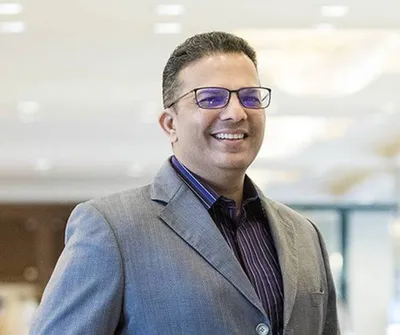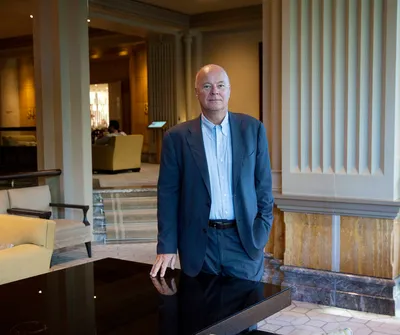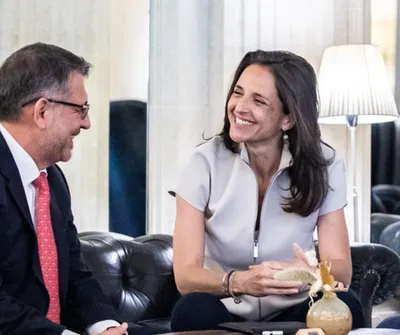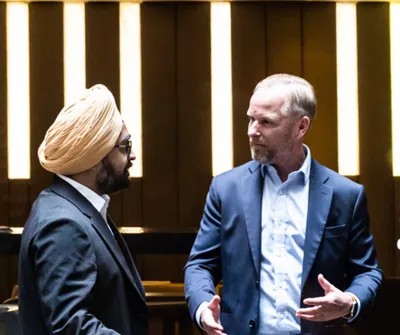At Kestria Ireland, we are focused on building strategic partnerships with our clients to ensure they have access to the quality talent they require to enable growth. We are collaborating with leadership teams to understand their long-term workforce requirements and creating tailored project solutions that provide enhanced resourcing capacity and a proactive approach to developing talent communities in passive niche markets. We become brand ambassadors for our clients, promoting their culture, telling their stories, and ensuring best-in-class candidate experience. In a fiercely competitive market as we have in Ireland currently, companies need to differentiate themselves from the competition. We support our clients in positioning their organization as an Employer of Choice in a global talent pool.‘

The creative approach to finding talent
Finding the right talent in this industry often takes a little creativity, something Manish Mehta (Kestria Malaysia) and his colleagues have begun to apply in the form of cross-functional talent acquisition: ‘From an Asia perspective, throughout the last couple of years, we have started proposing to clients to develop talents rather than just buying talents. What we mean by that is looking at cross-functional industries for bringing talents from, for example, life science and healthcare where the business models are similar. The marketing strategies may be a little bit different but there are several similarities, and we ourselves have done all of the placements in bringing talents from outside the healthcare industry. If there is a shortage within a specific industry, we can look at the peripheral industries where these talents would be of good value to the target industry.’

Katerina Meimaroglou (Kestria Greece) sees the development in the industry as driving this need for creativity: ‘In Europe, the pharmaceutical industry is perceived as being a little bit slower moving than other industries due to differing skillsets in talents who work in this industry. This is due to the pharmaceutical industry being much more regulated and needing a specific plan for target achievement and communication. Now with heavy regulation and governments getting involved with Pharma, this is even more strict. Pharmaceuticals is seeing movement to Pharma because candidates bring along more analytical and commercial skills and an understanding of the market. Technology is also very important because people now are predominantly remaining in home office mode. So, it's very important to keep up with technology education and recent market trends, all these affecting talents, and critical positions in the multinationals in the life science sector.’

Manveet Hora (Kestria India) sees the aforementioned trend even at the level of client needs: ‘We work with companies now who could be consolidating different therapy areas in the people who will meet the doctors. They have one person doing a role that earlier 10 people were doing, their expectations have changed completely and they want candidates to be able to sell from the doorman to the doctor and an engagement across all levels. And this is where we struggle with our clients to help them fill as they often want a combination of backgrounds that are uncommon. So it really depends on how we define the problem and the shortage and the appropriate solution.‘

Forward planning at every step
For Jan Friberg (Kestria Sweden), it’s all about open communication with the client: ‘I believe the management of expectations is key to allow time to obtain more potential candidates that will fill a role. Challenging the client by offering them a broader spectrum of backgrounds, such as the science of business, enables you to expand the talent pool you offer. This is complex as, in a way you are admitting to the struggle to find talent, however, it is better, in the long run, to work from a bigger group of potentials to find the right fit.‘

Per Celine Chabee (Kestria Canada), the challenge of the talent shortage in life science is not really a new one, but the times are really more difficult. ‘Right now, for biotech in precision medicine, we see the covid impact on the healthcare system and a deteriorating economic situation against us. Therefore, it's more important than ever to be very strategic and flexible in our approach. This means working on a proper and well-thought-out position profile, sometimes posing before going to the market in order to ensure that all parts of the profile are well-defined including a horizontal and upward influence as well as future migration potential. This needs to be done slowly or quickly depending on the market reality and you also need to be very competitive on compensation.‘

For Niklas Claesson (Kestria Sweden), the difficulty depends very much on the position: ‘We have the experience to bring in new competencies from outside the life science/healthcare area into a business, such as digital transformation because pharma companies is not at the forefront of this. However, I also think we need to find more new talents, and if you take Sweden, we have a lot of universities with good reputations which attract talent from all over the world. I think one opportunity could be to figure out or find a bridge to take people from academia/universities to industry and the business world to gain experience and grow with these companies.’

For Eimhin O’Driscoll (Kestria Ireland), the best strategy is long-term planning with clients and candidates alike: ‘Despite the challenges of the global economy, Ireland continues to attract large-scale investment from multinationals in the life sciences sector with over 4,500 new jobs announced from 2020 to 2025 with planned new facilities and site expansions. Inevitably, this leads to an increased demand for talent with the required skills and competencies to lead and drive that growth. When speaking with our clients, many view the attraction and retention of talent as one of the biggest challenges to their business.
It is clear from the discussion with our global colleagues that success in recruitment in the Healthcare industry requires more “out-of-the-box” thinking to achieve success. Because of the diversity of our network and industry knowledge, Kestria is more than fit and willing to rise to the challenge through cooperation with our global experts, all deeply rooted and knowledgeable in their markets and ready to cooperate closely with clients to find them the right candidates to fill these complex roles.





